For 35 years, the American Educational Research Association (AERA) and IEL have been co-hosting education policy forums. Since 1983, these forums have served as a vehicle to highlight research, policy, and practice in education. These monthly luncheons feature many of the best researchers, thinkers, and leaders in education.

The American Educational Research Association (AERA) and IEL have been co-hosting education policy forums since 1983 as a vehicle to highlight research, policy, and practice in education. These monthly luncheons feature many of the best researchers, thinkers, and leaders in education.
2017-2018 Forums
Advocating for Education in a Unique Political Climate
Our May policy forum will provide an opportunity to gain a comprehensive understanding of the impact of the contemporary political climate on education. How has the current political climate impacted their ability to accomplish their goals and to stave off mission harm? How have they modified their advocacy strategies to take advantage of any opportunities afforded by the political climate, as well as to defend against policies detrimental to their organizations’ missions? We will hear from advocates representing four different and very interesting education organizations:
- Matt de Ferranti, National Indian Education Association; Legislative Director
- Jocelyn Bissonnette, Director of Government Relations, National Association of Federally Impacted School
- John Laughner, Legislative and Communications Manager, Magnet Schools of America
- Narric Rome, Vice President of Government Affairs and Arts Education, Americans for Arts




Required reservations may be made online no later than Monday, April 30th. Limited available seating is assigned according to the order in which reservations are received. Fifteen dollars for the subsidized lunch will be collected at the door (cash or check only).
Opening Doors, Changing Futures
The Appalachian Higher Education Network, 2011-2016
February 23rd, 2018 – hosted at the Appalachian Regional Commission
“Opportunity in America―to reach the middle class, have a good job and career and contribute to one’s community―depends on success in postsecondary education.” (Lumina Foundation)
The report, Opening Doors,Changing Futures tells the story of an ARC initiative – The Appalachian Higher Education Network―to increase postsecondary education attainment in a region in which 54+% of the workforce (persons ages 25-64) –have only a high school diploma. Using program data and personal commentaries, the report focused on school years 2011-2016 and identified the challenges faced by and the goals achieved by both the high schools participating in the program and the 6,699 non-traditional adults served. The AHE Network Leadership Mentor, Betty Hale, will provide a brief overview of the region-wide report, and three panelists representing postsecondary education access programs in three Appalachian states – Kentucky, Tennessee and Pennsylvania – will describe their work and identify how their efforts have contributed to increased postsecondary education attainment in the region. They also will talk about the ongoing need to continue their efforts.
Millennial Teachers: Pushing and Pulling Education Reform
January 26, 2018
Mary E. Dilworth will lead a discussion that probes beneath the surface to recognize and explain how the current generation of teachers and those of color, in particular, have a distinctly different mindset than their baby boomer and generation X predecessors; what habits of mind and experiences contribute to their understanding of quality teaching and student learning; what constitutes good and useful preparation and practice; and what processes and policies accommodate cultural responsiveness and allow for all students to meet their full potential. She will be joined by some of the chapter authors of her new book, Millennial Teachers of Color.
Mary E. Dilworth‘s career is centered on teacher quality and preparation, with a keen focus on racial/ethnic and linguistic diversity and equity issues. She led a host of education research, policy, and program initiatives as vice-president of the National Board for Professional Teaching Standards and senior vice-president of the American Association of Colleges for Teacher Education. Dr. Dilworth currently serves as an advisor to a range of non-profit education organizations and institutions. Recently, Dilworth was a co-principal investigator for a National Science Foundation (NSF-DR12) project designed to recruit, prepare, license and employ middle and high school science teachers from under-represented groups. In addition, she served as a visiting professor and director of the Center for Urban Education at the University of the District of Columbia. Earlier in her career she was a research fellow with Howard University’s Institute for the Study of Educational Policy (ISEP) and wrote the book Teachers’ Totter: a Report on Teacher Certification Issues widely recognized as heightening the national discourse on the disparate impact of licensing tests on under-represented groups.
Dr. Dilworth is editor of the book, Millennial Teachers of Color, scheduled for release in spring 2018 with Harvard Education Press. She has written, edited and contributed to scores of scholarly books, articles, policy and research reports and essays. Her recent contributions include: a 2014 NEA report, Time for a Change: Diversity in Teaching Revisited; a chapter in the 2013 International Guide to Student Achievement; an entry in James A. Banks’ Encyclopedia of Diversity in Education (2012); and the 2012 article, Historically Black Colleges and Universities in Teacher Education Reform in the Journal of Negro Education.
Throughout her career, Mary E. Dilworth has held a number of elected and appointed positions on boards and commissions including: the American Educational Research Association (AERA); the Educational Testing Service (ETS); the National Education Association (NEA); the American Federation of Teachers (AFT) and the Ford Foundation. Dilworth received her a BA degree in elementary education, a MA degree in student personnel administration in higher education from Howard University and a doctorate from Catholic University of America in higher education administration.
Measuring Success: Testing, Grades, and the Future of College Admissions
December 8, 2017

Jack Buckley is senior vice president at AIR. He leads AIR’s Research and Evaluation area where he oversees projects across our entire range of subject areas including education, health, and the workforce both in the United States and internationally, always with the goal expanding our knowledge about how best to improve people’s lives, particularly the disadvantaged.
Dr. Buckley has a deep background in applied statistics and education research. Before joining AIR, he helped lead the redesign of the SAT at the College Board, where he served as senior vice president of research and was responsible for all research and psychometrics across their entire range of products and services. Before that, he served as Commissioner of the U.S. Department of Education’s National Center for Education Statistics (NCES). In that role he was responsible for the measurement of all aspects of U.S. education, including conducting the National Assessment of Educational Progress and coordinating U.S. participation in international assessments. While at NCES he also acted as a senior technical adviser to Department of Education leadership and co-chair of its Data Strategy team. Additionally, he served as Deputy Commissioner of NCES earlier in his career.
November 17, 2017

US higher education expert Jeff Selingo challenges higher education leaders to pursue collaboration rather than competition to drive down costs, better serve learners, and achieve institutional excellence in the 21st century. He makes a cogent and convincing argument that building Networked Universities will allow individual institutions to maintain, and perhaps even strengthen, their independent missions, all while building platforms for solving some of higher education’s toughest problems. The Networked University highlights the pioneers of this new type of alliance, and lays out a path for institutions to begin building their own Networked Universities.
Jeffrey J. Selingo has written about higher education for two decades. He is the author of three books, the newest of which, There Is Life After College (HarperCollins, 2016), is a New York Times bestseller.
Named one of LinkedIn’s “must-know influencers” of 2016, Jeff is a regular contributor to the Washington Post and a special advisor at Arizona State University, where he is the founding director of the ASU-Georgetown University Academy for Innovative Higher Education Leadership. He is also a visiting scholar at Georgia Tech’s Center for 21st Century Universities.
Jeff received a bachelor’s degree in journalism from Ithaca College—where he serves on the college’s Board of Trustees—and a master’s degree in government from the Johns Hopkins University. He lives with his wife and two daughters in Washington, D.C.

Using Indigenous Frameworks to Build Community Capability
October 19, 2017
Margaret J. Maaka presents this Fall. Abstract: The pēpeha “Ānō me he whare pūngāwerewere. As though it were a spiderweb. A compliment for a fine piece of work such as weaving or carving.” (Mead & Grove, 2001, p. 17) calls attention to the artistry and intricacy involved in the weaving of a web. This imagery highlights the interwoven and configurational elements of fine silken strands that make up a creation wondrous to behold.
The spider and web analogy encapsulates several inter-related ideas, practices, and perceptions relating to indigenous community development. These will be highlighted in the presentation—the complexity of culture (the integration and validity of cultural norms within educational developments); the complexity of partnerships (the nature of the participants and their ability to obtain deep understandings of the unique contexts in which they work), the complexity associated with the work (especially the need to protect and survive in hostile environments), and most important, the complexity of consequence (the outcomes of the partnership work).
Margaret J. Maaka (Ngāti Kahungunu, Ngāi Tahu, Ngāti Awa) is a professor of education at the University of Hawaiʻi at Mānoa where she received her PhD in Educational Psychology.
Margie is Director of the Ho‘okulāiwi: Center for Native Hawaiian and Indigenous Education (the educational arm of the Hokupili Foundation and a university/native Hawaiian community partnership). She is co-founder of the AERA’s Indigenous Peoples of the Pacific Special Interest Group and currently serves as the Chair of the AERA Executive Committee for Special Interest Groups. She also serves on the International Research Advisory Board of the Ngā Pae o te Māramatanga Center of Research Excellence.
Margie is interested in the preparation of indigenous leaders in education. Her research interests include community partnerships, educational psychology/ indigenous educational psychology, indigenous development and advancement, educational policy, multi-literacies, and language and cognitive development.
View Margie’s powerpoint from her presentation.
2016-2017 Forums
Learning From Summer: What We Know from Research About Summer Learning
June 16, 2017
Sarah Pitcock, co-editor of The Summer Slide: What We Know and Can Do About Summer Learning Loss (Teachers College Press, 2016), will discuss the growing body of evidence on summer learning loss, the conditions that impede learning over the summer months, and best practices in summer programming with lessons on how to strengthen program evaluations. She will also discuss summer learning as a strategy to both narrow the achievement and opportunity gaps.
Dr. Jennifer McCombs will discuss the findings of her research on whether voluntary, district-led summer programs can improve outcomes among low-income students. The Wallace Foundation launched the National Summer Learning Project (NSLP) in 2011 expanded summer program opportunities for students in urban districts. As a part of this project, The Foundation sponsored RAND to conduct a study of district-led, voluntary summer programs in five school districts—Boston, Dallas, Duval County (Florida), Pittsburgh, and Rochester (New York)—to assess their effects on more than 3,000 students. The RAND study examined these effects using several methods, including a randomized controlled trial (RCT) on a cohort of students who were third graders in spring 2013. She will present findings from this report focusing on the effects of two consecutive summers of programming in 2013 and 2014 on language arts (LA) and mathematics learning and on less-studied outcomes—student behavior and social-emotional competence—in both the near term (the fall after the summer program) and the longer term (through spring 2015).
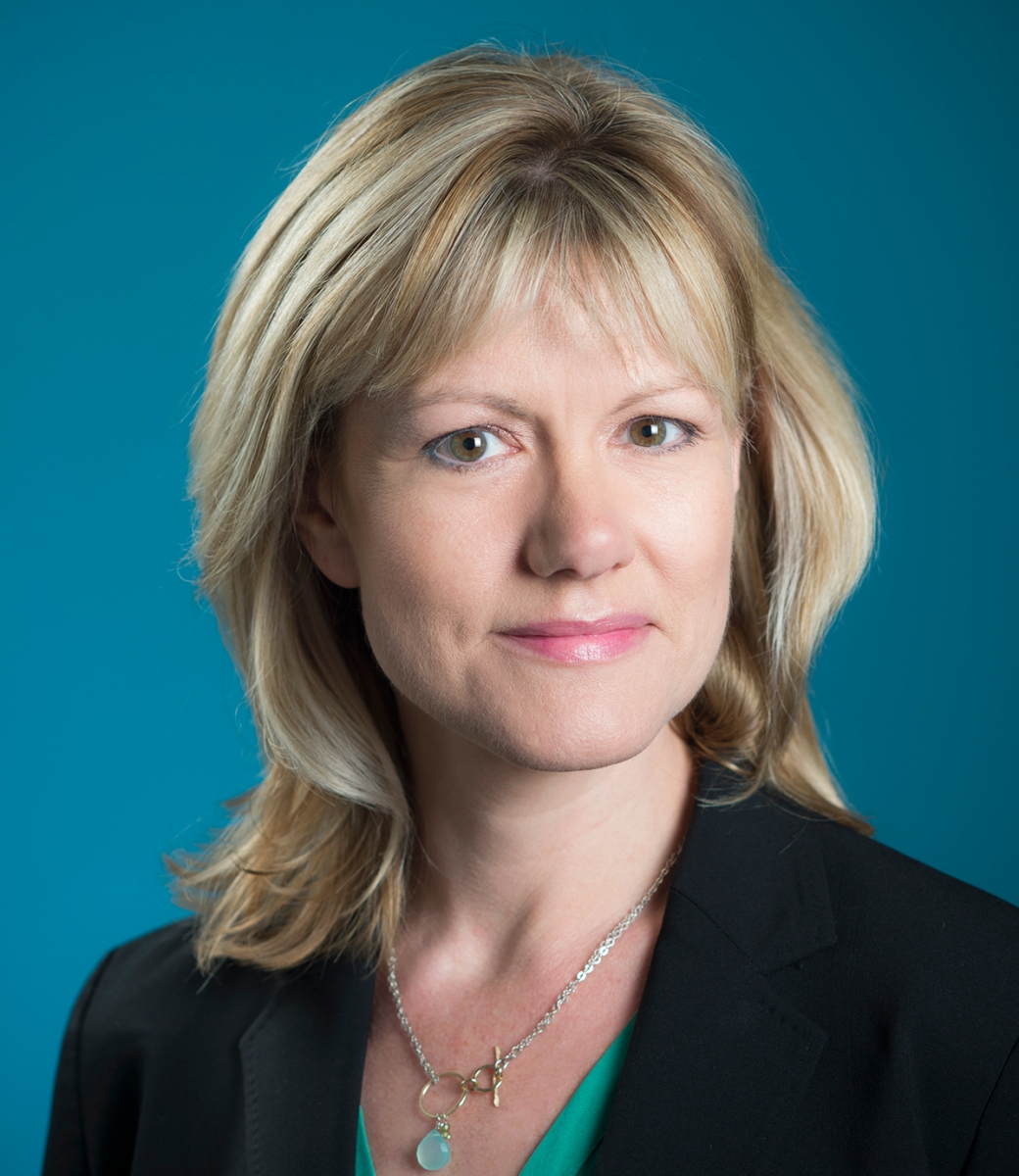
Dr. Jennifer McCombs, Senior Policy Researcher and Director, Behavioral and Policy Sciences Department at RAND
Dr. Jennifer McCombs is a Senior Policy Researcher and Director of the Behavioral and Policy Sciences Department at RAND. She also serves as a professor at the Pardee RAND Graduate School. Her research focuses on evaluating the extent to which public policies and programs improve outcomes for at-risk students. Her studies combine implementation and outcome data to provide practitioners and policymakers guidance on how to improve programs and promote student outcomes. She currently leads a five-district, longitudinal study of voluntary summer learning programs for low-income elementary youth that includes extensive primary data collection including classroom observations, interviews, surveys, and student testing. She is also conducting a developmental evaluation of cities’ efforts to fully institute a measurement framework to strengthen their after school systems. Over the course of her career, she has studied how to improve teacher effectiveness (through professional development, coaching, education); the development of systems for out-of-school-time programs; the implementation and impact of test-based promotion policies; and the effects of federal accountability policies on schools, classrooms, and students. McCombs earned her Ph.D. in public policy from The George Washington University.

Sarah Pitcock, Writer and Colsultant for Social Causes, Sarah Pitcock, LLC, Former CEO at National Summer Learning Association
Sarah Pitcock is a writer and consultant for nonprofits and foundations. Sarah’s expertise in summer learning stems from her 10-year career at the National Summer Learning Association (NSLA), culminating as its CEO from 2013-2016. Sarah has built support for high-quality summer learning programs through policy advocacy, research and writing and numerous media and communications efforts. She led the $15.5 million national Smarter Summers middle school literacy initiative, served on the steering committee of the Summer Matters Campaign in California, delivered technical assistance for the Campaign for Grade-Level Reading and co-developed the Summer Learning Program Quality Assessment with the David P. Weikart Center. Previously, Sarah served as Deputy Press Secretary for the Mayor of Baltimore and Marketing Manager for the Orlando Repertory Theatre. Sarah holds bachelor degrees in Public Relations and Political Science from the University of Florida and a master’s degree in Public Policy from Johns Hopkins University.
The Rising Price of Objectivity
May 19, 2017
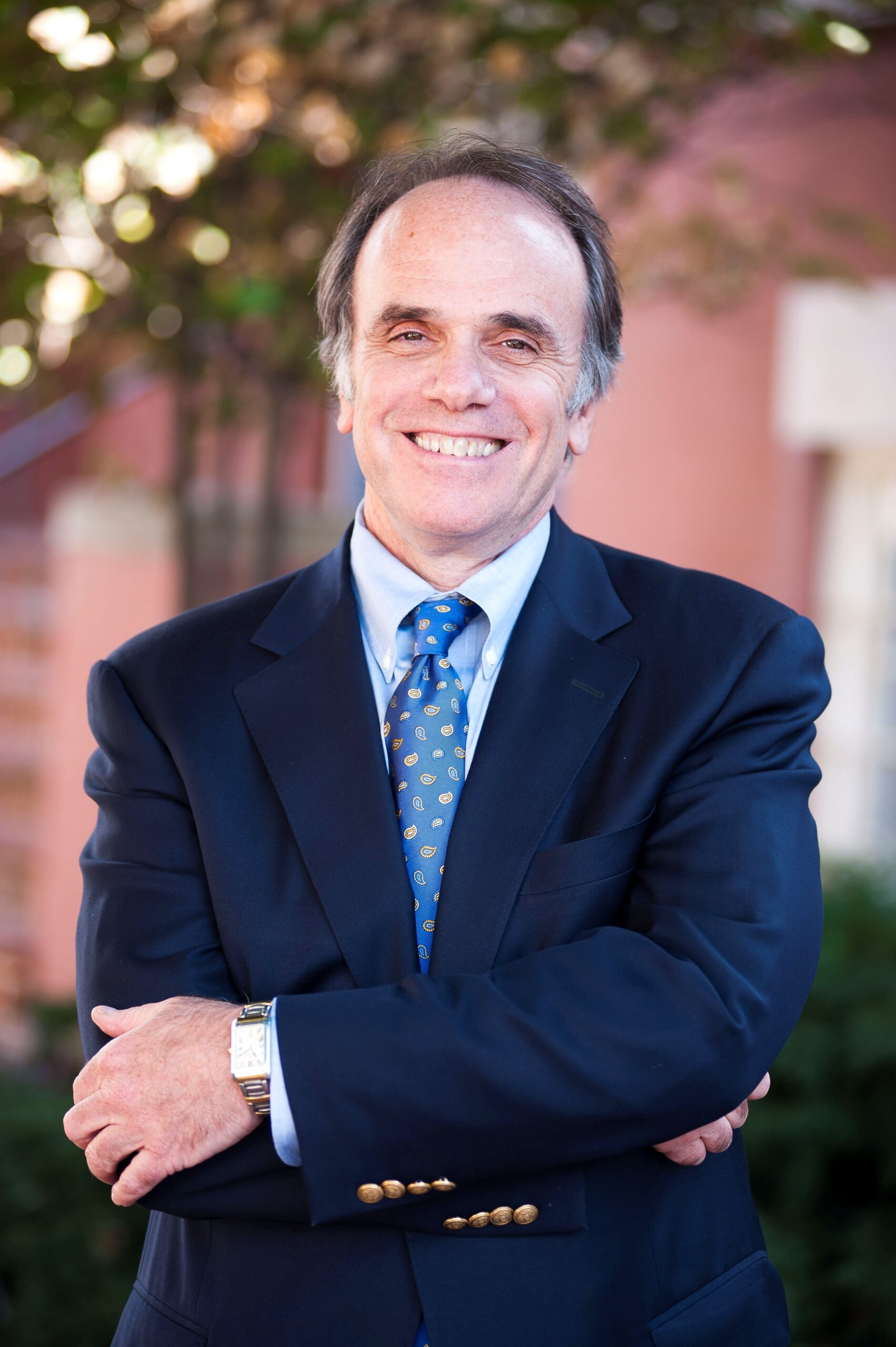
![]() Presentation slides available here.
Presentation slides available here.
Read Michael Feuer’s Huffington Post guest blog.
In The Rising Price of Objectivity, Michael J. Feuer describes what he sees as a “perfect storm” gathering in the sea of education research. He notes the convergence of three important trends: first, the rise in strategic education philanthropy; second, the decline in federal funding, in part due to ideologically contested priorities; and third, the growing influence of nonacademic think tanks operating outside the constraints of university-based research. Together, he cautions, the combination of these forces threatens scientific research generally, and in particular, jeopardizes the effort to generate independent, credible evidence that is needed to inform and guide our efforts to improve education. Feuer proposes a series of measures for countering the drift toward ideology over inquiry and ensuring that private foundations, the so-called advice industry, and the federal government protect the reliability and credibility of education research for the advancement of the public good.
Michael J. Feuer is Dean of the Graduate School of Education and Human Development and Professor of Education Policy at The George Washington University, and President of the National Academy of Education. Before coming to GW in 2010, Feuer held positions at the National Research Council of the National Academies: he was the founding director of the Board on Testing and Assessment, founding director of the Center for Education, and executive director of the Division of Behavioral and Social Sciences and Education. Prior to joining the NRC in 1993, Feuer was a senior analyst and project director at the US Congress Office of Technology Assessment.
He has written two books, both published by Harvard Education Press. The most recent one, “The Rising Price of Objectivity: Philanthropy, Government, and the Future of Education Research” came out in November, 2016. He has had dozens of peer reviewed articles in leading education, economics, philosophy, and policy journals. His essays, commentaries, and poems have appeared in newspapers, blogs, and magazines in the US and abroad. Feuer consults regularly to educational institutions and government in the US, Israel, Europe, and the Middle East.
California’s Independent Approach to Education Reform in Changing Times
April 07, 2017
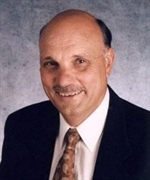
A number of important education reforms have been unfolding in California in recent years that carry important lessons for other states, particularly as the nation’s education systems prepare for the Every Student Succeeds Act. Over the past five years, the state policies have changed systematically and coherently toward Common Core and Next Generation Science Standards alignment in all priority areas—special education, English learners, curriculum, principal/teacher policy, waivers, college readiness, CTE, finance, and state assessments. There is still ways to go to build educator capacity, but incremental progress has shown positive outcomes. Join Dr. Michael Kirst for an education update on the reforms transforming California.
Dr. Michael Kirst is the president of the California State Board of Education and professor emeritus of education and business administration at Stanford University. He first served as president of the California State Board from 1977 to 1981 and was a member of the board from 1975 to 1977. Prior to joining the Stanford University faculty in 1969, Dr. Kirst served in several positions in the federal government, including staff director of the U.S. Senate Subcommittee on Manpower, Employment, and Poverty; director of program planning and evaluation for the Bureau of Elementary and Secondary Education in the U.S. Office of Education (now the U.S. Department of Education); and associate director of the White House Fellows. He began his career in 1964 as a budget examiner for the Title I program in the U.S. Bureau of the Budget in the U.S. Office of Education.
Dr. Kirst has authored several books, including The Political Dynamics of American Education and From High School to College. He has served as vice president of the American Educational Research Association (AERA) and commissioner of the Education Commission of the States (ECS), and co-founded Policy Analysis for California Education.
Dr. Michael Kirst: California Education Policy Overview 2017 Slides
Speaking Truth to Power in Teacher Education
March 17, 2017
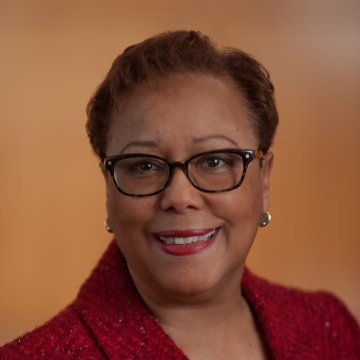
In July, Sharon Robinson will be retiring. She will be concluding one more installment of a fulsome career encompassing education research, education policy, and education practice. She has agreed to meet with the Education Policy Forum to discuss her hard-won experiences and well- honed perspectives about scholarship, education policy, teacher education, and citizenship.
Dr. Robinson has provided leadership to the AACTE as president and CEO since 2005 – the most recent stop along her journey. Among her previous leadership positions are included: assistant secretary of education for the Organization of Education Research and Improvement (now the Institute of Education Sciences); president of the Educational Policy Leadership Institute of the Educational Testing Service; and director of NEA’s National Center on Innovation.
A lifelong civil rights activist, Dr. Robinson has in each of her professional positions worked to realize our nation’s moral and professional responsibility to educate and maximize the potential of all students, especially those with disabilities and racial/ethnic minorities. She has been a good citizen in each of the organizations with which she is associated, serving as a frequent committee member for programs of the AERA and the National Council for Measurement in Education, and serving on the board of the PDK Educational Foundation and the Learning First Alliance.
February 17, 2017
The Latino population of young people is the fastest growing minority group in the United States. Although they are accessing postsecondary institutions in record numbers, data shows that Latino students continue to face multiple barriers to opportunity, access, and success. Join us for the AERA/IEL Education Policy Forum for a discussion about equity and opportunity to support Latino/a students, the changing policy landscape, and the ways forward.
Deborah A. Santiago is the co-founder, Chief Operating Officer and Vice President for Policy at Excelencia in Education. For more than 20 years, she has led research and policy efforts from the community to national and federal levels to improve educational opportunities and success for all students. She co-founded Excelencia in Education to inform policy and practice to accelerate Latino student success in higher education. Her current work focuses on federal and state policy, financial aid, Hispanic-Serving Institutions (HSIs), and effective institutional practices for student success in higher education. She has been cited in numerous publications for her work, including The Economist, the New York Times, the Washington Post, AP, and The Chronicle of Higher Education. Deborah serves on the board of the National Student Clearinghouse, and the advisory boards of thedream.us and Univision’s Education Campaign.
Jose Luis Santos: As Ed Trust’s vice president of higher education policy and practice, José Luis oversees all aspects of the organization’s higher education work, which is focused on improving access, affordability, completion, and post-enrollment success for low-income students and students of color. The driving force behind José Luis’ work is his belief that federal, state, and institutional policies may not adequately support increased educational and economic outcomes for traditionally underrepresented students (low-income, people of color, first-generation, and veterans) but rather, perpetuate inequitable outcomes leading to further stratification.
Rethinking Assessments
January 18, 2017

This is an extraordinary time in education. Our students are facing a future world whose parameters have yet to be defined and they are relying on us to make the best decisions for them. For more than a decade, there has been a growing interest in and focus on accountability including the measurement of students’ academic achievement. As a result, an enormous amount of energy, time, and emotion has been expended reacting to issues such as Common Core State Standards (CCSS) and various types of assessments. The Every Student Succeeds Act (ESSA) presents a unique and timely opportunity to step back, reflect, refocus, and become proactive on how our schools, districts, and states should define and evaluate student success. This moment may never cross our paths again; hence, it is critical to seize it with vigor, focus and, most especially, with students at the core of decisions. This session will focus on work being considered and done involving the use of multimetric accountability systems across states and districts. A short presentation will be followed by a robust conversation.
Deborah S. Delisle is the Executive Director and CEO of ASCD. During Deb’s 40-year career in education, she has served as a teacher, gifted education specialist, curriculum director, elementary school principal, district associate superintendent, superintendent, state superintendent, and university instructor. She was nominated as the U.S. Assistant Secretary of Elementary and Secondary Education by President Obama in January 2012, confirmed by the U.S. Senate on April 27, 2012, and served in that position until 2015. As an assistant secretary of education, she played a pivotal role in policy and management issues affecting preK, elementary, and secondary education for the U.S. Department of Education and oversaw 86 programs with a portfolio of almost 26 billion dollars. Delisle coordinated and recommended policy for programs designed to assist state and local education agencies in improving the achievement of preschool, elementary, and secondary school students.
2015-2016 Forums
State Implementation of the Every Student Succeeds Act: Challenges and Opportunities
December 16, 2016
With the passage of our new federal education law, the Every Student Succeeds Act, states are working with diverse stakeholders to design their state plans. Join us for a conversation on where states are in their planning, what they see as the biggest opportunities and challenges, and what the recent national elections might mean for the implementation of this new law.
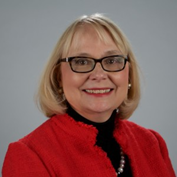
Kris Amundson, Executive Director, National Association of State Boards of Education
Hon. Kristen Amundson brings more than two decades of experience as a policymaker to NASBE. She represented the 44th District in the Virginia General Assembly from 1999-2009. During that time, she was a member of Virginia’s P-16 Council and the Southern Regional Education Board (SREB). Before successfully running for an Assembly seat, Ms. Amundson—a former teacher—served for nearly a decade on the Fairfax County, Va., School board, including two years as its chariwoman. Most recently, she was the senior vice president for external affairs at Education Sector, an independent think tank. She writes frequently on education issues and has been published in The Washington Post and the Richmond Times-Dispatch, among others.

Mary Kingston Roche, Public Policy Director, Institute for Educational Leadership and Member of Prince George’s County Local School Board
Mary leads policy and advocacy efforts to promote the community schools approach at federal and state levels for IEL. She also manages the Coalition for Community Schools’ relationships with its over 100 national partners. Before coming to IEL, Mary was manager of government relations for the National Association of Secondary School Principals, where she represented our nation’s secondary school leaders. Mary began her career teaching 6th and 9th grade English for three years in Oakland, California.
The Nation’s Report Card- Information Innovation and Impact with Bill Bushaw
November 4, 2016
Read Bill Bushaw’s guest blog post on this lecture- The Nation’s Report Card Goes Digital.
Within the last 12 months, The National Assessment of Educational Progress (NAEP), The Nation’s Report Card, has released national student achievement results related to science, technology, engineering and mathematics (STEM). This session will focus on these results, particularly highlighting NAEP’s first-ever assessment of Technology and Engineering Literacy (TEL). This innovative, digitally-based assessment incorporates many scenario-based tasks that utilize a multimedia approach.
Additionally, the Governing Board is finalizing a strategic vision to guide its policy work during the next four years. This work will focus on increased dissemination of results, new efforts supporting academic preparedness assessment and reporting, and advanced techniques to refine NAEP’s assessment frameworks. In an interactive environment, learn more about the Board’s direction and offer recommendations on approaches to help inform the Board’s work.

The independent, bipartisan National Assessment Governing Board was created by Congress in 1988 to set policy guidelines for The Nation’s Report Card. In overseeing the National Assessment of Educational Progress (NAEP), the Governing Board identifies subjects to be tested, determines the content and achievement levels for each assessment, approves all test questions, and takes steps to improve the form, reporting, and use of results. The Board works closely with the National Center for Education Statistics (NCES), which administers the NAEP program.
Bill Bushaw, Executive Director, National Assessment Governing Board
As the Governing Board’s Executive Director, Bill Bushaw is responsible for executing the policies and projects initiated by the Board, and also serves as its chief of staff. Before joining the Governing Board, Bushaw served as chief executive officer of Phi Delta Kappa International (PDK)—serving as one of the co-authors of the annual PDK/Gallup Poll of the Public’s Attitudes Toward the Public Schools. Prior to PDK, Bushaw held
other education positions including: learning systems director at the University of Michigan’s Merit Network, deputy superintendent and chief academic officer at the Michigan Department of Education, and director of the Michigan North Central Association. He began his education career as a middle school science teacher and high school principal. His bachelor’s and doctorate degrees are from the University Michigan. Bushaw also served in the United States Navy, active and reserve, retiring at the rank of Captain.
Location: Institute for Educational Leadership, 4301 Connecticut Ave, NW, Suite 100, Washington, DC 20008. Closest Metro station is Van Ness-UDC (red line). Parking is available in the building’s garage for a fee.
Teacher Views and Voices with Maria Ferguson
August 2, 2016
In the winter of 2015, the Center on Education Policy (CEP) surveyed a nationally representative sample of public school teachers to learn their views on the teaching profession, state standards and assessments, testing, and teacher evaluations. The report, Listen to Us: Teacher Views and Voices, summarizes these survey findings, including responses indicating that public school teachers are concerned and frustrated with shifting policies, over emphasis on student testing, and their lack of voice in decision-making. Maria Ferguson, Executive Director of CEP, will explore the report’s findings and implications for the teaching profession and education policy.
Analysis of the report, Listen to Us, can be found on the Peggy Brookins’ Huffington Post blog post and Maria Ferguson’s blog post for the Hunt Institute.
Maria Ferguson, Executive Director, Center on Education Policy
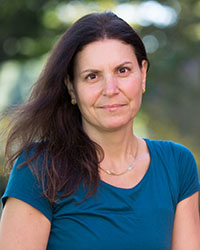 Maria Ferguson (speaker) is the executive director of the Center on Education Policy (CEP) at the George Washington University (GWU) in Washington, DC, an independent nonprofit organization that studies and reports on the education policy and practice. CEP is a trusted, nonpartisan source for education research and analysis for policymakers, educators and the public. Ferguson oversees all of the Center’s operations, outreach and research, and acts as chief fundraiser and spokesperson.
Maria Ferguson (speaker) is the executive director of the Center on Education Policy (CEP) at the George Washington University (GWU) in Washington, DC, an independent nonprofit organization that studies and reports on the education policy and practice. CEP is a trusted, nonpartisan source for education research and analysis for policymakers, educators and the public. Ferguson oversees all of the Center’s operations, outreach and research, and acts as chief fundraiser and spokesperson.
Prior to her role at CEP, Ferguson served as the Vice President for Policy at the Alliance for Excellent Education, Director of the National School Boards Foundation, Director of Field Operations for New American Schools, and director of Communication and Outreach Services for the U.S. Department of Education’s Office of Elementary and Secondary Education during the Clinton Administration. She also co-chaired the Department’s annual Improving America’s Schools Conferences. Ferguson began her career as a journalist, working for Cox Newspapers, the Associated Press, and U.S. News & World Report.
Analysis of the report, Listen to Us, can be found on the Peggy Brookins’ Huffington Post blog post and Maria Ferguson’s blog post for the Hunt Institute.
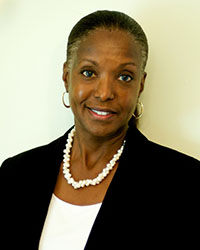
Peggy Brookins, President & CEO, National Board
Peggy Brookins (discussant) joined the National Board as executive vice president in December 2014, and was named president & CEO in November 2015. Her long career as an educator includes many national leadership positions and accolades. In July 2014, President Barack Obama named Brookins as a member of the President’s Advisory Commission on Educational Excellence for African Americans. She joins the National Board from the Engineering and Manufacturing Institute of Technology at Forest High School in Ocala, Fla., which she co-founded in 1994 and where she served as director and as a mathematics instructor.
A Fresh Look at Challenges and Opportunities in the Federal Education Research Program with Ruth Neild
July 15, 2016
Ruth Neild, Deputy Director, Institute of Education Sciences, U.S. Department of Education
Dr. Ruth Neild, deputy director for policy and research at the Institute of Education Sciences (IES), spoke about federal education research policy issues. She addressed some of the familiar criticisms about the federal research programs in a recent article titled: “Federally-supported education research doesn’t need a do-over.” Her views on the role of the federal government in creation and utilization of education research will no doubt be sought in the implementation of research provisions of the Every Student Succeeds Act (ESSA) and in the forthcoming reauthorization of IES (Strengthening Education Through Research Act). Neild has also been delegated the duties of the IES director, ably filling the vacancy arising with the departure of John Easton. She is the first person to head the agency who has prior experience as an IES commissioner of one of the four research centers. As director of the National Center for Education Evaluation and Regional Assistance (NCEE), Neild was responsible for the federal Regional Educational Laboratories, the What Works Clearinghouse, and the Education Resources Information Center (ERIC). In addition to her research experience within the Department of Education, Neild was a research scientist at the Johns Hopkins Center for Social Organization of Schools. She earned her doctorate in sociology at the University of Pennsylvania and earned her bachelor’s degree in history and sociology from Bryn Mawr College.
An Insider Perspective on Standards-Based Education Reform with Michael Cohen
June 17, 2016
Michael Cohen, President, Achieve
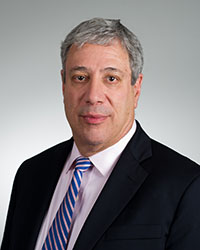 Michael Cohen has worked to promote standards-based education reform in significant and varied leadership positions for much of his career. He has served as director of education policy for the National Governors Association (NGA), director of planning for the National Association of State Boards of Education (NASBE), assistant secretary of elementary and secondary education in the U.S. Department of Education, and education advisor to the president during the Clinton Administration. Since 2003, Michael has been president of Achieve, an organization dedicated to standards-based education, and has become a leading spokesperson for improved standards and assessments. Under his leadership, Achieve has partnered with PARCC to help develop and promote the Common Core State Standards. Under his leadership, Achieve also has formed the American Diploma Project Network to develop state standards for improving preparation for postsecondary education.
Michael Cohen has worked to promote standards-based education reform in significant and varied leadership positions for much of his career. He has served as director of education policy for the National Governors Association (NGA), director of planning for the National Association of State Boards of Education (NASBE), assistant secretary of elementary and secondary education in the U.S. Department of Education, and education advisor to the president during the Clinton Administration. Since 2003, Michael has been president of Achieve, an organization dedicated to standards-based education, and has become a leading spokesperson for improved standards and assessments. Under his leadership, Achieve has partnered with PARCC to help develop and promote the Common Core State Standards. Under his leadership, Achieve also has formed the American Diploma Project Network to develop state standards for improving preparation for postsecondary education.
Cohen shared his thoughts about the historical development of the standards-based reform movement in the U.S. and identified critical political issues confronting the movement at present. He also will provide his perspective on the future of the movement.
Learn more about Michael Cohen.
Samuel Halperin Lecture and Youth Public Service Award with Michele Cahill
April 15, 2016
Michelle Cahill, Distinguished Fellow in Education and Youth Development, National Center for Civic Innovation
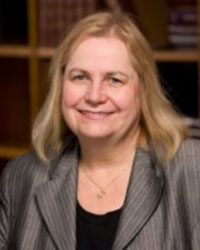 AYPF founder Samuel Halperin believed strongly in the value of public service and the potential for education to lift youth out of poverty and to change their lives. At the second Samuel Halperin Lecture and Youth Public Service Award, AYPF and IEL honored Ebony Rempson, whose dedication to these ideas embodies Halperin’s work and life.
AYPF founder Samuel Halperin believed strongly in the value of public service and the potential for education to lift youth out of poverty and to change their lives. At the second Samuel Halperin Lecture and Youth Public Service Award, AYPF and IEL honored Ebony Rempson, whose dedication to these ideas embodies Halperin’s work and life.
This year, the lecture was presented by Michele Cahill, Distinguished Fellow in Education and Youth Development at the National Center for Civic Innovation. Cahill has a strong commitment to advancing youth policy and working to expand opportunities for disconnected youth.
Rempson, a 21-year-old D.C. native and AmeriCorps volunteer, spoke about her personal struggles on her path to public service and her goal of supporting other young African-American women.
Read the the transcript of Michele Cahill’s lecture and Ebony Rempson’s winning essay.
Education Governance, Politics, and Progress in DC with David Grosso
March 17, 2016
David Grosso, Chairperson, Committee on Education, D.C. City Council
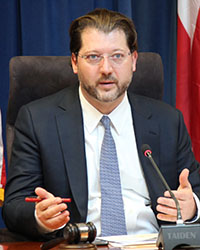 Who influences education policy in D.C.? In addition to the city council, there are the mayor and the deputy mayor for education, the state board of education, the public charter school board, the community schools advisory board, and many others.
Who influences education policy in D.C.? In addition to the city council, there are the mayor and the deputy mayor for education, the state board of education, the public charter school board, the community schools advisory board, and many others.
David Grosso is Chairperson, Committee on Education for the D.C. City Council. He was elected on an ethical reform platform in 2012 and he became chair of the Committee on Education in 2014.
Grosso spoke about the unique governance structure for education in the District, and shared his goals and strategies for further improvement of education in the nation’s capital. What education changes can be achieved by David’s committee to improve education and the lives of DC’s children? Grosso has big ideas about improvements to be made in the education system, many of them involving health and community issues.
Learn more about David Grosso.
Foundations for Young Adult Success with Jenny Nagaoka
February 26, 2016
Jenny Nagaoka, Deputy Director, UChicago Consortium on School Research
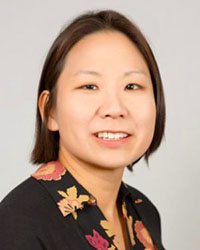 Amid growing recognition that strong academic skills alone are not enough for young people to become successful adults, Foundations for Young Adult Success: A Developmental Framework offers wide-ranging evidence to show what young people need to develop from preschool to young adulthood to succeed in college and career, have healthy relationships, be engaged citizens, and make wise choices. It concludes that rich experiences combining action and reflection help children develop a set of critical skills, attitudes, and behaviors. And it suggests that policies should aim to ensure that all children have consistent, supportive relationships and an abundance of these developmental experiences through activities inside and outside of school.
Amid growing recognition that strong academic skills alone are not enough for young people to become successful adults, Foundations for Young Adult Success: A Developmental Framework offers wide-ranging evidence to show what young people need to develop from preschool to young adulthood to succeed in college and career, have healthy relationships, be engaged citizens, and make wise choices. It concludes that rich experiences combining action and reflection help children develop a set of critical skills, attitudes, and behaviors. And it suggests that policies should aim to ensure that all children have consistent, supportive relationships and an abundance of these developmental experiences through activities inside and outside of school.
The Wallace Foundation awarded a competitive grant to UChicago CCSR in 2013 to undertake the project, which included a review of relevant literature spanning decades as well as interviews with national experts in research, policy and practice, and young people and the adults who work with them in schools, programs and agencies throughout Chicago.
The report offers evidence to show how, where, and when the “key factors” to success develop from early childhood through young adulthood, emphasizing the kinds of experiences and supportive relationships that guide the positive development of these factors. Recognizing that there are no silver bullets to promoting social-emotional learning, the report emphasizes a range of factors that build on one another over time. It also emphasizes factors that are particularly malleable, as well as the age at which each of the key factors comes into prominence, offering adults the most promising window for positive intervention.
Download Foundations for Young Adult Success: A Developmental Framework.
Learn more about Jenny Nagaoka.
Read a recap of the event on Huffington Post.
Student Testing in America’s Great City Schools with Raymond Hart
January 29, 2016
Raymond Hart, Director of Research, Council of the Great City Schools
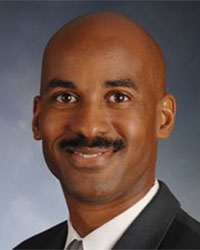 On October 26, 2015, viewers of the PBS News Hour heard host Gwen Ifill say: “In a policy reversal the Obama Administration, which has supported assessment of students and teachers, has reversed its policy and now says standardized testing has gotten out of hand.” As many will have noted, this reversal came on the heels of a report on the amount of testing in urban schools by the Council of the Great City Schools. Our policy forum speaker was the person responsible collecting and synthesizing the data at the heart of the report, Raymond Hart.
On October 26, 2015, viewers of the PBS News Hour heard host Gwen Ifill say: “In a policy reversal the Obama Administration, which has supported assessment of students and teachers, has reversed its policy and now says standardized testing has gotten out of hand.” As many will have noted, this reversal came on the heels of a report on the amount of testing in urban schools by the Council of the Great City Schools. Our policy forum speaker was the person responsible collecting and synthesizing the data at the heart of the report, Raymond Hart.
Download Student Testing in America’s Great City Schools: An Inventory and Preliminary Analysis.
Learn more about Raymond Hart.
Click here to read a recap of the event on Huffington Post.
Reframing Education Outcomes with Yong Zhao
December 8, 2016
Yong Zhao, Presidential Chair and Director of the Institute for Global and Online Education, University of Oregon College of Education
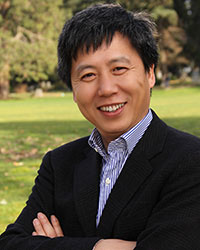 Overemphasizing test scores as measures of achievement is potentially harmful to education. The book editors identify key traits such as mindset, motivation, social skills, creativity, and entrepreneurial spirit that students, teachers, and schools need to acknowledge and cultivate. Educators are asked to shift the evaluation paradigm to focus on a multiplicity of skills necessary for success in the 21st century. The discussion examined the problems with current measures of students’ skills, discuss strategies for measuring global competences, and explore how and why are nonacademic qualities valuable to long-term educational outcomes.
Overemphasizing test scores as measures of achievement is potentially harmful to education. The book editors identify key traits such as mindset, motivation, social skills, creativity, and entrepreneurial spirit that students, teachers, and schools need to acknowledge and cultivate. Educators are asked to shift the evaluation paradigm to focus on a multiplicity of skills necessary for success in the 21st century. The discussion examined the problems with current measures of students’ skills, discuss strategies for measuring global competences, and explore how and why are nonacademic qualities valuable to long-term educational outcomes.
Purchase Counting What Counts: Reframing Education Outcomes.
Read a recap of the event on Huffington Post.
The Global Challenge of Educating High-Ability Students with Chester Finn, Jr.
November 20, 2016
Chester Finn, Jr., Distinguished Senior Fellow and President Emeritus, Thomas B. Fordham Institute
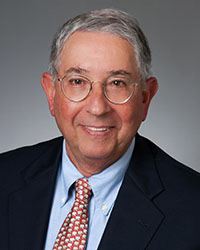 In this provocative volume, Chester E. Finn, Jr., and Brandon L. Wright argue that, for decades, the United States has done too little to focus on educating students to achieve at high levels. The authors identify two core problems: First, compared to other countries, the United States does not produce enough high achievers. Second, students from disadvantaged backgrounds are severely underrepresented among those high achievers. The authors describe educating students to high levels of achievement as an issue of both equity and human capital: talented students deserve appropriate resources and attention, and the nation needs to develop these students’ abilities to remain competitive in the international arena. The authors embark on a study of twelve countries and regions to address these issues, exploring the structures and practices that enable some countries to produce a higher proportion of high-achieving students than the United States and to more equitably represent disadvantaged students among their top scorers. Based on this research, the authors present a series of ambitious but pragmatic points that they believe should inform U.S. policy in this area.
In this provocative volume, Chester E. Finn, Jr., and Brandon L. Wright argue that, for decades, the United States has done too little to focus on educating students to achieve at high levels. The authors identify two core problems: First, compared to other countries, the United States does not produce enough high achievers. Second, students from disadvantaged backgrounds are severely underrepresented among those high achievers. The authors describe educating students to high levels of achievement as an issue of both equity and human capital: talented students deserve appropriate resources and attention, and the nation needs to develop these students’ abilities to remain competitive in the international arena. The authors embark on a study of twelve countries and regions to address these issues, exploring the structures and practices that enable some countries to produce a higher proportion of high-achieving students than the United States and to more equitably represent disadvantaged students among their top scorers. Based on this research, the authors present a series of ambitious but pragmatic points that they believe should inform U.S. policy in this area.
Purchase Failing Our Brightest Kids: The Global Challenge of Educating High-Ability Students.
Learn more about Chester Finn, Jr.
Preparing and Supporting School Principals with Brenda Turnbull
October 30, 2016
Brenda Turnbull, Researcher, Policy Studies Associates, Inc.
How do we strengthen our pipelines for preparing and supporting school principals? How do we build districts’ capacity to advance their priorities through school leadership? What is the impact of the pipelines on student achievement? Brenda Turnbull (speaker), researcher at Policy Studies Associates, Inc., and Lynda Tredway (discussant), senior associate for the Leaders for Today and Tomorrow Project at IEL, discussed key components that strengthen districts’ school leadership pipelines.
Read her evaluation research on the Principal Pipeline Initiative.
Learn more about Brenda Turnbull.
2014-15 Forums
California’s Independent Approach to Education Reform: National Implications with Michael Kirst
July 14, 2015
Michael Kirst, President, California State Board of Education; Emeritus Professor of Education, Stanford University
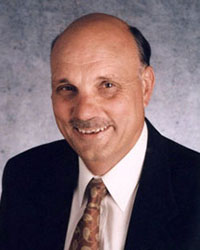 A number of important education reforms have recently been enacted in the nation’s most populous state that have national implications. California has taken a different approach than most other states in not acquiescing to federal expectations and independently pursuing significant reforms related to the Common Core and school finance.
A number of important education reforms have recently been enacted in the nation’s most populous state that have national implications. California has taken a different approach than most other states in not acquiescing to federal expectations and independently pursuing significant reforms related to the Common Core and school finance.
The evolution of Common Core in California has been relatively non-controversial and embraced by a broad array of stakeholders. Unlike the process in so many states, teacher evaluation and high-stakes accountability were left out of the initial stages of implementation, allowing teachers and students time to adjust. California’s higher education segments likewise have been involved and are supportive. The new school finance legislation in California consolidated a wide array of categorical programs and represents a major departure in school funding policy. Most other jurisdictions have highly centralized state finance models. California’s new local control funding formula gives local school systems much greater financial autonomy as well as responsibility for accountability. This new California funding approach obviously has profound significance for educational governance and equity issues.
Read a leadership profile on Michael Kirst.
Presidents, Congress, and the Public Schools with Jack Jennings
May 29, 2015
Jack Jennings
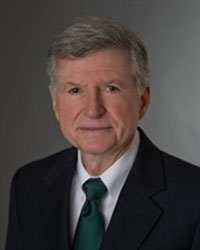 April 2015 marked the fiftieth anniversary of the Elementary and Secondary Education Act (ESEA), the landmark legislation that has provided the foundation of federal education policy in the United States. In Presidents, Congress, and the Public Schools: The Politics of Education Reform, longtime policy analyst Jack Jennings examines the evolution of federal education policy and outlines a bold and controversial vision for its future. Jennings brings an insider’s knowledge to this account, offering a vivid analysis of federal efforts in the education arena and revealing some of the factors that shaped their enactment. His rich descriptions and lively anecdotes provide pointed lessons about the partisan climate that stymies much federal policy making today.
April 2015 marked the fiftieth anniversary of the Elementary and Secondary Education Act (ESEA), the landmark legislation that has provided the foundation of federal education policy in the United States. In Presidents, Congress, and the Public Schools: The Politics of Education Reform, longtime policy analyst Jack Jennings examines the evolution of federal education policy and outlines a bold and controversial vision for its future. Jennings brings an insider’s knowledge to this account, offering a vivid analysis of federal efforts in the education arena and revealing some of the factors that shaped their enactment. His rich descriptions and lively anecdotes provide pointed lessons about the partisan climate that stymies much federal policy making today.
Purchase Presidents, Congress, and the Public Schools: The Politics of Education Reform.
Learn more about Jack Jennings.
Samuel Halperin Lecture and Youth Public Service Award with Hilary Pennington
April 20, 2015
Hilary Pennington, Vice President, Education, Creativity, and Free Expression, Ford Foundation
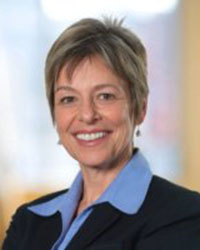 AYPF founder Samuel Halperin believed strongly in the value of public service and the potential for education to lift youth out of poverty and to change their lives. On Monday, April 20, 2015, AYPF and IEL honored Efrem Ayalew, whose dedication to these ideas embodies Halperin’s work and life.
AYPF founder Samuel Halperin believed strongly in the value of public service and the potential for education to lift youth out of poverty and to change their lives. On Monday, April 20, 2015, AYPF and IEL honored Efrem Ayalew, whose dedication to these ideas embodies Halperin’s work and life.
The event’s inaugural lecturer, Hilary Pennington, Vice President of the Ford Foundation’s Education, Creativity and Free Expression program, spoke before Efrem, and focused on not only the progress made, but also the significant amount of work to be done in improving youth outcomes. Large gaps in postsecondary achievement, employment, and wages had not improved enough for disconnected youth, or “the forgotten half,” said Pennington. “You take all these trends together and you have to be sobered at where we started from, despite the enormous progress that we’ve made.”
Pennington also added that in order to address the challenges of improving youth outcomes, efforts will have to be comprehensive and address all aspect’s of youth’s lives. “What Sam would remind us is that the responses we should be aiming for are not responses that divide and segment, they are responses that see young people as whole beings,” said Pennington.
Watch the video of Hilary Pennington’s lecture.
Learn more about Hilary Pennington.
Political Education: Setting the Course for State and Federal Policy with Christopher Cross
March 13, 2015
Christopher Cross, Chairman, Cross & Joftus
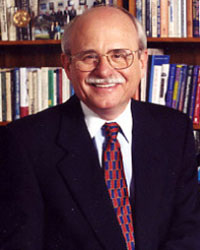 In this volume, political insider Christopher Cross updates his critically acclaimed bestseller with new chapters and important new insights into future education policy. Cross draws on his own experience in Washington, along with research and interviews, to present a highly readable history of federal education policy, from WWII to the Obama administration. The book highlights the key players who helped shape federal policy because, as Cross writes in his introduction, ”policy development is woven of personalities, events, and timing.” This fascinating chronicle demonstrates, among other things, how federal policy has been a constant influence on what states and local districts do, especially with respect to students most at-risk.
In this volume, political insider Christopher Cross updates his critically acclaimed bestseller with new chapters and important new insights into future education policy. Cross draws on his own experience in Washington, along with research and interviews, to present a highly readable history of federal education policy, from WWII to the Obama administration. The book highlights the key players who helped shape federal policy because, as Cross writes in his introduction, ”policy development is woven of personalities, events, and timing.” This fascinating chronicle demonstrates, among other things, how federal policy has been a constant influence on what states and local districts do, especially with respect to students most at-risk.
Purchase Political Education: Setting the Course for State and Federal Policy, 2nd Edition.
Learn more about Christopher Cross.
The Long Shadow: Family Background, Disadvantaged Urban Youth, and the Transition to Adulthood with Karl Alexander
February 13, 2015
Karl Alexander, Academy Professor and Research Professor of Sociology, Johns Hopkins University
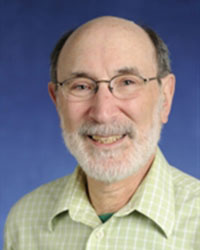 West Baltimore stands out in the popular imagination as the quintessential “inner city.” Indeed, with the collapse of manufacturing jobs in the 1970s, the area experienced a rapid onset of poverty and high unemployment, with few public resources available to alleviate economic distress. But in stark contrast to the image of a perpetual “urban underclass” depicted in television by shows like The Wire, sociologists Karl Alexander, Doris Entwisle, and Linda Olson present a more nuanced portrait of Baltimore’s inner-city residents that employs important new research on the significance of early life opportunities available to low-income populations.
West Baltimore stands out in the popular imagination as the quintessential “inner city.” Indeed, with the collapse of manufacturing jobs in the 1970s, the area experienced a rapid onset of poverty and high unemployment, with few public resources available to alleviate economic distress. But in stark contrast to the image of a perpetual “urban underclass” depicted in television by shows like The Wire, sociologists Karl Alexander, Doris Entwisle, and Linda Olson present a more nuanced portrait of Baltimore’s inner-city residents that employs important new research on the significance of early life opportunities available to low-income populations.
The Long Shadow focuses on children who grew up in West Baltimore neighborhoods and others like them throughout the city, tracing how their early lives in the inner city have affected their long-term well-being. Although research for this book was conducted in Baltimore, that city’s struggles with deindustrialization, White flight, and concentrated poverty were characteristic of most East Coast and Midwest manufacturing cities. The experience of Baltimore’s children who came of age during this era is mirrored in the experiences of urban children across the nation.
Learn more about Karl Alexander.
Doing the Right Thing for Children: Eight Qualities of Leadership with Maurice Sykes (DC EPFP 78-79)
December 19, 2015
Maurice Sykes, Director, Early Childhood Leadership Institute, University of the District of Columbia
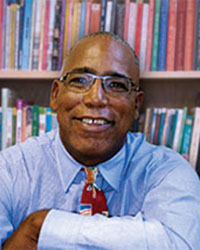 Maurice Sykes has made advocating for and advancing high-quality early childhood education his life’s work. Through mentorships, presentations, and personal example, Maurice challenges and inspires educators to become effective leaders who make a difference in children’s lives. He does the same in his book, Doing the Right Thing for Children: Eight Qualities of Leadership as he shares stories of the hills and valleys of his personal and professional journeys throughout the presentation of eight core leadership values: human potential, knowledge, social justice, competence, fun and enjoyment, personal renewal, perseverance, and courage.
Maurice Sykes has made advocating for and advancing high-quality early childhood education his life’s work. Through mentorships, presentations, and personal example, Maurice challenges and inspires educators to become effective leaders who make a difference in children’s lives. He does the same in his book, Doing the Right Thing for Children: Eight Qualities of Leadership as he shares stories of the hills and valleys of his personal and professional journeys throughout the presentation of eight core leadership values: human potential, knowledge, social justice, competence, fun and enjoyment, personal renewal, perseverance, and courage.
Purchase Doing the Right Thing for Children: Eight Qualities of Leadership.
Read an EPFP alumni blog post on Maurice Sykes.
Time for Learning: Top 10 Reasons Why Flipping the Classroom Can Change Education with Kathleen Fulton (DC EPFP 04-05)
October 31, 2015
Kathleen Fulton, Writer and Education Consultant
 Is “flipped education” simply the latest fad in education, or will it change the pedagogy of education and expand the horizons of teachers and students? Kathleen Fulton believes the flipped classroom has the potential for bringing instructional reforms to education. In this Educational Policy Forum, she shared her experiences and perspective on the use of flipped classrooms in the K-12 settings in math and science education.
Is “flipped education” simply the latest fad in education, or will it change the pedagogy of education and expand the horizons of teachers and students? Kathleen Fulton believes the flipped classroom has the potential for bringing instructional reforms to education. In this Educational Policy Forum, she shared her experiences and perspective on the use of flipped classrooms in the K-12 settings in math and science education.
Kathleen’s perspective is shaped by her many experiences working with technology and by having witnessed the many promising innovations that ultimately failed to be sustainable. She shared her observations of the applications of “flipping” in K-12 education, with special emphasis on STEM education. She also discussed the essential technological core of flipped classrooms and the challenges faced by teachers and schools systems in achieving successful learning outcomes.
Purchase Time for Learning: Top 10 Reasons Why Flipping the Classroom Can Change Education.